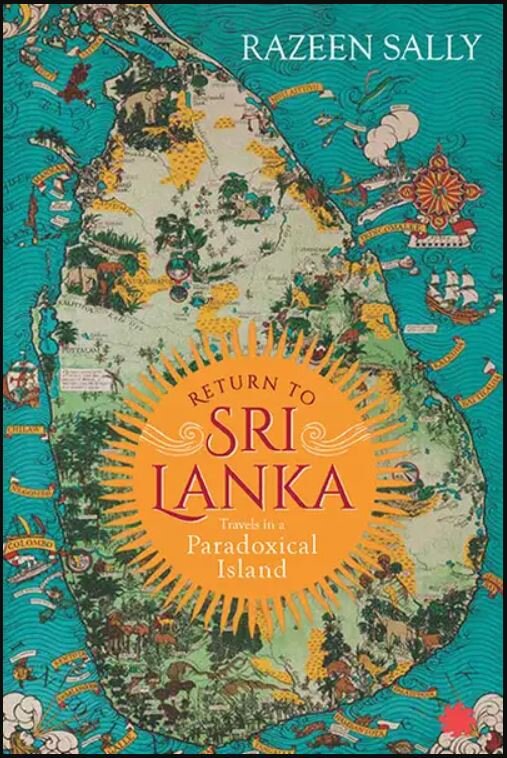Advocata Institute hosted their latest event, “පොඩි බිස්නස් පොඩි කරන කරන රතු පටි රෙගුලාසි” on the 5th of March 2020. This event served as the official launch of the Red Tape Project, the culmination of their ongoing work on removing legal and regulatory barriers faced by small and micro entrepreneurs.
Daily FT: More difficult to register small business than limited company: Advocata
"Advocata Institute hosted their latest event, ‘Red Tape Regulations that Stifle Small Business’ in Colombo last week. The objective of the Red Tape Project is to identify, study, and advocate for the removal of legal and regulatory barriers faced by businesses in Sri Lanka. As a first step towards the process, it launched a report on ‘Barriers to Micro and Small Enterprises in Sri Lanka’, and a website for entrepreneurs to submit views on red tape and government processes that need to be removed or simplified."
Ceylon Today: Advocata hosts event for small and micro entrepreneurs
“The report, ‘Barriers to Micro and Small Enterprises in Sri Lanka’ provides an understanding of the landscape of micro and small enterprises in the country, drawing from an islandwide survey. The survey highlights the various regulatory barriers that these enterprises face, ranging from issues of finance, registration, space and labour.”
The Morning: Advocata launches Red Tape Project for small businesses
"The objective of the Red Tape Project is to identify, study, and advocate for the removal of legal and regulatory barriers faced by businesses in Sri Lanka. As a first step towards the process, Advocata launched a report on “Barriers to Micro and Small Enterprises in Sri Lanka”, as well as www.redtape.lk, a website for entrepreneurs to submit their frustrations or views on red tape and government processes and regulations that need to be removed or simplified. The work on this project was then followed up by the #MystoryLK online competition, where Advocata asked micro and small entrepreneurs islandwide to send in essays, in Sinhala, Tamil, and English, detailing the barriers they had faced in setting up their businesses and how they believed the system could change to reduce the issues they faced.."
Economy Next: Red tape hinders registration of small businesses in Sri Lanka: think tank
"Red tape is hindering the registration of small businesses at Divisional Secretariats in Sri Lanka, discriminating against the poor and holding back entrepreneurship, Advocata Institute, a Colombo-based think tank said."
Sunday Times: Micro enterprises face many issues in running a business
"Dhananath Fernando, CEO, AI at the outset explained the harrowing experiences the micro entrepreneurs encounter and also explained the purpose of the ‘red-tape’ across the participants’ seats. To prepare the report, AI carried out a survey to find out these barriers and the report was based on the survey. The researchers have found out that micro-small entrepreneurs largely operate from their homes and lack of access to finance limits this sector reaching the next level."
Lanka Business Online: It’s more difficult to register a small business than a limited company: Report
"The objective of the Red Tape Project is to identify, study, and advocate for the removal of legal and regulatory barriers faced by businesses in Sri Lanka. Advocata also launched www.redtape.lk, a website for entrepreneurs to submit their frustrations or views on red tape and government processes and regulations that need to be removed or simplified. Rajapatirana says the comparison of Sri Lanka’s practices with those of Hong Kong and New Zealand, two countries that have higher rankings for economic freedom in the world and also have best practices for registration of enterprises is used to guide the reform recommendations."
Ada Derana: සී/ස පුද්ගලික සමාගමක් ලියාපදිංචි කිරීමට වඩා ඒක පුද්ගල කුඩා ව්යාපාරයක් ලියාපදිංචි කිරීම අපහසුයි
Advocata Institute නවතම වාර්තාව “පොඩි බිස්නස් පොඩි කරන රතු පටි රෙගුලාසි” 2020 මාර්තු 5දා පවත්වනු ලැබී ය . කුඩා සහ ක්ෂුද්ර ව්යාපාර මුහුණදෙන නීතිමය හා නියාමන බාධක ඉවත් කරගැනීම සදහා ඔවුන් දැන් කරගෙන යන කටයුතුවල කූටප්රාප්තිය ලෙස , රතු පටි ව්යාපෘතිය නිල වශයෙන් ආරම්භ කිරීමේ අවස්ථාව ලෙස මෙම උත්සවය වැදගත් වෙයි .
Lanka News: සී/ස පුද්ගලික සමාගමක් ලියාපදිංචි කිරීමට වඩා ඒක පුද්ගල කුඩා ව්යාපාරයක් ලියාපදිංචි කිරීම අපහසුයි
පොඩි බිස්නස් පොඩි කරන රතු පටි රෙගුලාසි ව්යාපෘතියේ අරමුණ වන්නේ ශ්රී ලංකාවේ ව්යාපාර මුහුණ දෙන නීතිමය හා නියාමන බාධක හදුනාගැනීම , අධ්යයනය කිරීම හා ඒවා ඉවත්කිරීම වෙනුවෙන් පෙනීසිටීම යි . මෙහි මුල් පියවරක් වශයෙන් Advocata Institute “ක්ෂුද්ර හා කුඩා ව්යාපාරවලට ඇති නීතිමය හා නියාමන බාධා” පිලිබඳ වාර්තාව එලි දක්වනු ලැබීය. මෙහිදී නීතිමය හා නියාමන බාධක ඉවත් කළ යුතු හෝ සරළ කළ යුතු රජයේ ක්රියාවලි හා නීතී රීති පිළිබඳව ව්යවසායකයින්ට තම කලකිරීම හෝ අදහස් ඉදිරිපත්කිරීම සදහා www.redtape.lk වෙබ් අඩවියක් ද ආරම්භ කළේ ය.
Citizen: “පොඩි බිස්නස් පොඩි කරන රතු පටි රෙගුලාසි” මාර්තු 5 එළිදැක්වේ
Advocata Institute සුළු සහ කුඩා පරිමාණ ව්යාපාරිකයින් මුහුණදෙන නීතිමය ගැටලු ගැන නවතම අධ්යන වාර්තාවක් මාර්තු 5 වැනිදා ලක්ෂ්මන් කදිර්ගාමර් කෙන්ද්රයේ , ලයිට් හවුස් ශ්රවණාගාරයේ, කොළඹ 07දී එළිදක්වනු ලබනවා. එම අධ්යන වාර්ථාව නම් කර තිබෙන්නේ “Legal and Regulatory Barriers for Micro and Small Entrepreneurs” (කුඩා ව්යාපාරිකයින්ට බාධා කරන නීති සහ රෙගුලාසි) යන නමින්. මේ වාර්ථාව "පොඩි බිස්නස් පොඩි කරන රතු පටි රෙගුලාසි" යන දීර්ඝ ව්යාපෘතියක ආරම්භයයි. ඒක පුද්ගල ව්යාපාර සහ හවුල් ව්යාපාර අන්තර්ජාලය ඔස්සේ පහසුවෙන් ලියාපදිංචි කිරීම ගැන මෙම වාර්තාවෙන් අවධානය යොමු කරනවා.







